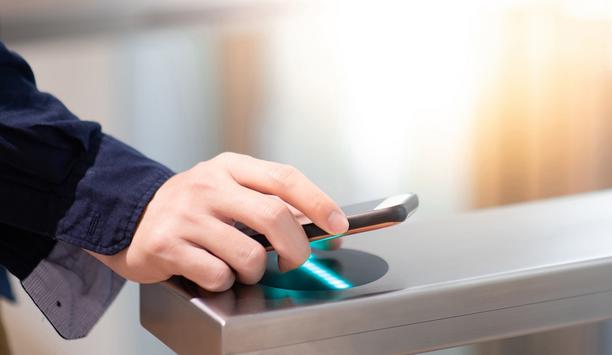Commercial security - Round table discussions
Air travel is returning to pre-pandemic levels. COVID and its aftermath have added new compliance and operational concerns for airport security, and social and political volatility around the world emphasises the need for constant vigilance. A range of new technologies are enhancing airport security, not to mention providing new tools to simplify processes throughout the airport. We asked our Expert Panel Roundtable: Which technologies are transforming airport security?
A new generation of security professional is waiting in the wings. They will be faced with unprecedented challenges, as they seek to transform the security marketplace to the ‘next level’. Technology changes ensure the market will be very different 10 years from now and the fresh labour pool will need to be able to meet the host of new challenges. We asked our Expert Panel Roundtable: What exciting career opportunities in the security industry await the next generation?
Cost is a reality to be managed. No matter how powerful or desirable a technology may be to a customer, the sale often comes down to the basic question: Can I afford it? And affordability extends not just to the purchase price, but to the cost of technology over its lifespan. In addition to advances in technology capabilities, the security industry has also achieved inroads to make its offerings more worth the cost. We asked this week’s Expert Panel Roundtable: What is the physical securi...
Crime prevention is a basic goal of security, even if a security system merely convinces a criminal to seek out a different target. However, many of today’s security technologies are most useful after the fact, to provide forensic information about a crime that has already taken place. Solving a crime presents a whole new level of challenge. Surely, prevention is the best approach. We asked this week’s Expert Panel Roundtable: How successful is the security industry in crime preventi...
Artificial intelligence (AI) is simultaneously an emerging technology, a common term in popular culture, and a buzzword in the security industry. But these aspects of the term can lead to misunderstanding in the marketplace. AI technology is continuing to emerge, but what is the reality today? How do depictions of AI in popular culture impact how it is understood in the real world of security? As a buzzword, at what point does marketing hype garble our understanding of reality? We asked this wee...
The idea of touchless systems has gained new levels of prominence during the last year, driven by the global COVID-19 pandemic. Contactless systems have been part of the industry’s toolbox for decades, while technologies like facial and iris recognition are finding new uses every day. We asked this week’s Expert Panel Roundtable: Which security markets are embracing touchless, contactless systems and why?
Adoption of General Data Protection Regulation (GDPR) by the European Union in 2016 set a new standard for data privacy. But adherence to GDPR is only one element, among many privacy concerns sweeping the global security community and leaving almost no product category untouched, from access control to video to biometrics. Because privacy concerns are more prevalent than ever, we asked this week’s Expert Panel Roundtable: What is the impact on the physical security market?
Many of us take critical infrastructure for granted in our everyday lives. We turn on a tap, flip a switch, push a button, and water, light, and heat are all readily available. But it is important to remember that computerised systems manage critical infrastructure facilities, making them vulnerable to cyber-attacks. The recent ransomware attack on the Colonial Pipeline is an example of the new types of threats. In addition, any number of physical attacks is also possibilities. We asked this we...
There is a broad appeal to the idea of using a smartphone or wearable device as a credential for physical access control systems. Smartphones already perform a range of tasks that extend beyond making a phone call. Shouldn’t opening the door at a workplace be among them? It’s a simple idea, but there are obstacles for the industry to get there from here. We asked this week’s Expert Panel Roundtable: What are the challenges and benefits of mobile access control solutions?
Perimeter security is the first line of defence against intruders entering a business or premises. Traditionally associated with low-tech options such as fencing, the field of perimeter security has expanded in recent years and now encompasses a range of high-tech options. We asked this week’s Expert Panel Roundtable: What are the latest trends in perimeter security technology?
In the past few weeks, the light at the end of the COVID-19 tunnel has brightened, providing new levels of hope that the worst of the pandemic is behind us. Dare we now consider what life will be like after the pandemic is over? Considering the possible impact on our industry, we asked this week’s Expert Panel Roundtable: Which security technologies will be most useful in a post-pandemic world?
Contact tracing has been more than a buzzword during the coronavirus pandemic. In some cases, it has been an issue of life and death. Tracking who an infected person has been in contact with is an important tool to minimise disease spread, and technology from the physical security industry claimed a role in contact tracing early on – and continues to provide benefits as companies seek to reopen. We asked this week’s Expert Panel Roundtable: How can the security industry enhance conta...
When technology performs a required task effectively, there is little reason to upgrade to the ‘next big thing’. In this regard, the physical security market is notoriously slow to change. Much of yesterday’s most robust and dependable equipment is still in place at thousands of customer sites, still performing as well as the day it was installed. However, there comes a point when any technology becomes outdated. We asked this week’s Expert Panel Roundtable: Which securi...
We are several weeks into 2021, and it is already shaping up to be an eventful year. The happenings and trends from 2020 will likely carry over into the new year, but in a fast-moving industry such as ours, there will also be additional trends to watch. Looking toward the year ahead, we asked this week’s Expert Panel Roundtable: What will be the biggest security trends in 2021?
As a subset of the larger economy, the security industry is bound to feel the effects of an economic downturn. Such was the case in 2020 when the COVID-19 pandemic undermined economic growth and presented a brand new set of challenges to business. The security industry has been able to pivot toward emerging opportunities, but that success has been offset by broader economic challenges. We asked this week’s Expert Panel Roundtable: What impact, positive or negative, has the larger economy h...
Should security spending be a one-time capital expense or as an ongoing operating expense? At first glance, the question appears to be an accounting issue with little impact on the actual equipment or systems involved. However, as security professionals seek to cost-justify new systems, the question may be central to providing the “best security for the money” and a system that fits the company’s continuing needs. We asked this week’s Expert Panel Roundtable: Should secur...
Traditionally, security industry professionals have often come from backgrounds in law enforcement or the military. However, the industry is changing, and today’s security professionals can benefit from a variety of backgrounds and educational disciplines. The industry’s emphasis on technology solutions suggests a need for more students of computer science, engineering and other technology fields. The closer integration of security with related disciplines within the enterprise sugge...
For several decades, Baby Boomers represented the largest sector of employees in the physical security market. However, these security professionals born between 1946 and 1964 are now nearing retirement – or have already retired. How will the security market change as the next generations step up to make their contributions? We asked this week’s Expert Panel Roundtable: As Baby Boomers approach retirement age, what are the positives and negatives in the physical security market?
Serving customer needs is the goal of most commerce in the physical security market. Understanding those needs requires communication and nuance, and there are sometimes surprises along the way. But in every surprising revelation – and in every customer interaction – there is opportunity to learn something valuable that can help to serve the next customer’s needs more effectively. We asked this week’s Expert Panel Roundtable: what was the best lesson you ever learned from...
The new year is several weeks old, so it is safe to say that many of our New Year resolutions have fallen by the wayside. Despite the limited success of our personal resolutions, the new year is a great time to take stock, look ahead, and plan to make 2020 the best year yet. Thinking about our industry as a whole, we asked this week’s Expert Panel Roundtable: What should be the security industry’s “New Year’s resolution?”
Delivering on customer expectations is a basic tenet of success in the physical security market. However, meeting expectations may be an elusive goal, whether because customer needs are not communicated effectively or because equipment doesn’t perform as promised. We asked this week’s Expert Panel Roundtable: what if a customer expects more than a security system can deliver?
When security topics become a part of current events, it is usually in a negative light. Security generally only becomes news when it fails, sometimes in a dramatic, high profile and tragic way. However, security failures can also shed light on lessons learned and opportunities to improve. Working toward better security can translate into the purchase of more goods and equipment supplied by our market. For additional insights into the intersection of security and current events, we asked this we...
The new year 2019 is brimming with possibilities for the physical security industry, but will those possibilities prove to be good news or bad news for our market? Inevitably, it will be a combination of good and bad, but how much good and how bad? We wanted to check the temperature of the industry as it relates to expectations for the new year, so we asked this week’s Expert Panel Roundtable: How optimistic is your outlook for the physical security industry in 2019? Why?
Employee turnover is a problem for many companies, especially among younger employees who have not developed the philosophy of employer loyalty that was common in previous generations. Nowadays, changing jobs is the norm. The idea of spending decades working for a single employer seems almost quaint in today’s economy. However, excessive employee turnover can be expensive for employers, who are looking for ways to keep their brightest and best employees happily toiling away as long as poss...
High-quality products are the building blocks of successful physical security systems. How they are packaged may sometimes be seen as an unimportant detail or an afterthought. But should it be? Effective packaging can serve many functions, from creating a favorable customer impression to ensuring the product isn’t damaged in transit. Packaging can also contribute to ease of installation. On the negative side, excess packaging can be an environmental concern, especially for customers who ar...
The residential/smart home market is undergoing revolutionary transformation, with a flood of new products and technologies helping to make our homes more connected, easier to manage and, yes, smarter. These massive steps forward provide challenges, and also opportunities, for the security industry, which has played a major role in protecting homes and residents for decades. We asked this week’s Expert Panel Roundtable: How are changes in the residential/smart home market impacting securit...
We have been hearing about smart buildings for more than a decade, but the increasing profile of the Internet of Things (IoT) expands the possibilities for intelligent building systems and makes them even more attainable. Security is often among the “smart” functions of a building, and the capabilities of many physical security systems can contribute in new ways to building intelligence. We asked this week’s Expert Panel Roundtable: What is the impact of “smart buildings&...
“Don’t try this at home.” It’s a common warning, but how does it apply to security systems? With today’s systems becoming easier to install, and with customers becoming more tech-savvy, there is a growing market for “do-it-yourself” or DIY home security systems. The trend also extends beyond the home security market: Business end users may also think they can forgo a professional installer and handle installation in-house. The customer may save money by...
Higher pixel count is better. It’s a basic tenet of the video surveillance market, or at least it is the implication as manufacturers continue to tout their latest products offering ever-higher pixel counts. But the reality is more nuanced, as our Expert Panel Roundtable panelists explain this week. Pixel count shouldn’t be seen as an end unto itself, but rather as a factor in determining what camera is applicable to which application. Pixel count is just one factor of several to con...
For many years, generally speaking, the use of video surveillance has been seen as an extension of an end user customer’s security system. However, recently, we have also heard about how video can help customers more generally, providing benefits that extend beyond security and encompass better operations and management. Easier economic justification is one important aspect of looking more broadly at the benefits of video surveillance to the enterprise as a whole. Better return on investme...
Using artificial intelligence (AI) to automate physical security systems
DownloadA modern guide to data loss prevention
Download7 proven solutions for law enforcement key control and asset management
DownloadThe truth behind 9 mobile access myths
DownloadAccess control system planning phase 2
Download

































